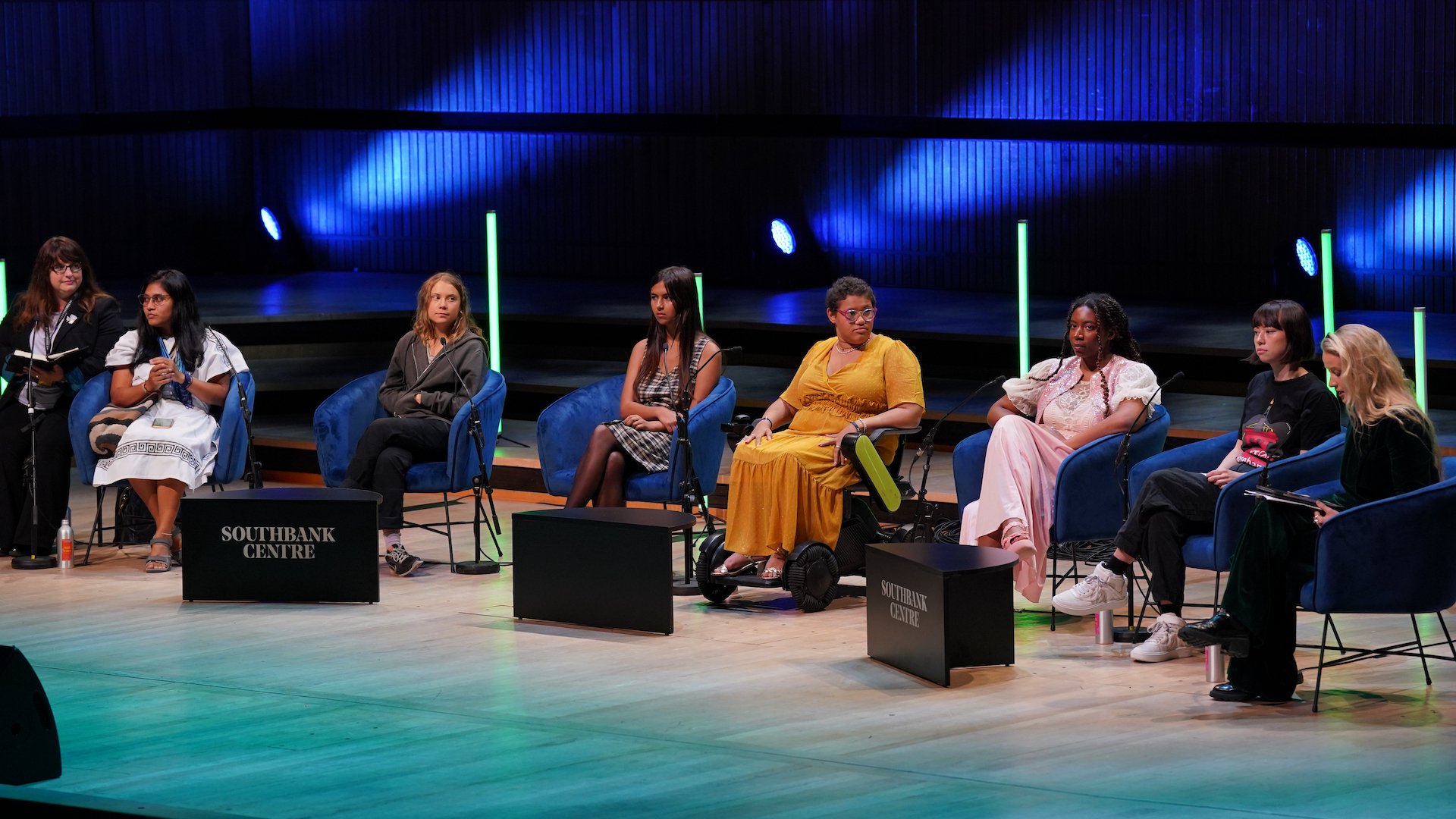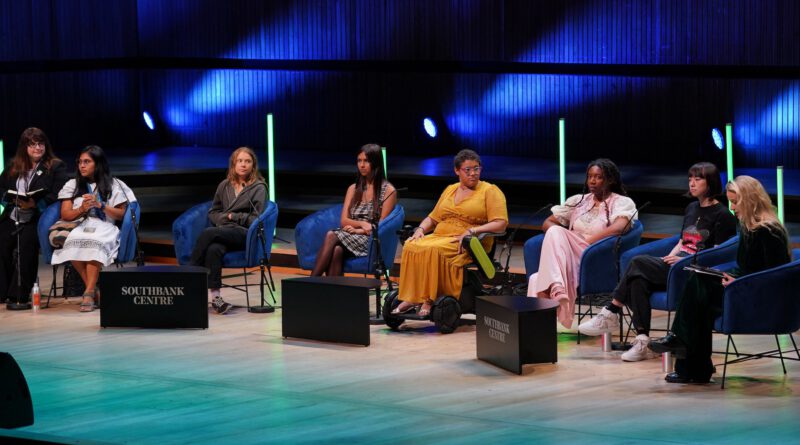Intersectional climate activism matters. Dominique Palmer, Tori Tsui, Daphne Frias, and Greta Thunberg explain why.

There are a lot of misconceptions about climate activism. From whether or not blocking off a street to protest is a sign of privilege, to unhelpful accusations of “climate hypocrisy”, to doubting whether your work even matters if thousands of people on social media don’t hear about it. But there are as many forms of activism in the world as there are activists. And not all heroes have blue ticks.
As July 2023 was officially proclaimed the hottest month ever recorded on Earth, both on land and in the oceans, six incredible climate activists got together at London’s Southbank Centre over the weekend to discuss the movement as well as climate justice and acknowledging the crisis’ connection to systems of oppression. And you can watch the whole conversation on YouTube below.
Greta Thunberg, Tori Tsui, Dominique Palmer, Daphne Frias, Mya-Rose Craig, and Ati Viviam Villafaña spoke to Earthrise founder Alice Aedy about their work and the multiple crises that comprise the global climate emergency, that each of the activists and their communities face. They’re the same group that came together at The New York Times Climate Hub during COP26 in 2021.
For Frias, as an American disability justice activist from Harlem, it’s fighting for intersectionality and inclusivity within the climate movement. She described the inclusive planning she has experienced within the environmentalist movement, including the Stop Cambo protests.
“It really shouldn’t be so few and far between,” said Frias onstage in the Royal Festival Hall. “This should be the norm within climate justice organising and social justice everywhere. All justice is disability justice and if you’re not including the voices of disabled people in your organising, what are you really organising for? If the environmental justice movement can be inclusive of that, so can all movements…It’s going to take all of us to solve this crisis.”
“All justice is disability justice and if you’re not including the voices of disabled people in your organising, what are you really organising for?”
For Palmer, a British climate justice activist, it’s about acknowledging that “all of these injustices are so interlinked. We have to make sure that what we demand then shapes policy and it shapes action, so it’s so important to make that that includes vulnerable communities and marginalised communities.”
Palmer spoke about climate justice and about joining the movement while living in Lewisham, South London, when she found her community was being disproportionately impacted by air pollution.
“Growing up as a young Black girl in London, I didn’t really see myself as an environmentalist,” Palmer said. “I didn’t see nature spaces as something that was for me or places that I quite belonged. There’s a groundwork or report that showed that communities of colour often lack access to quality nature spaces. Intersectionality is so important to have at the heart of the movement but we first need to understand: what is intersectionality, and why diversified perspectives are so important.”
For Craig, as a British-Bangladeshi ornithologist, environmentalist, and diversity activist, it’s the disproportionate climate damage that has become the daily reality for her relatives in Bangladesh. For Tsui, as a Bristol-based climate activist, speaker, and consultant, it’s the fight to stop the UK government from extracting oil in the North Sea.
“There is so much we can do,” said Tsui. “And history has shown us, as with Stop Cambo, that we can stop and end things if we try, but it does take community. This is all our responsibility. We have duty to one another, to those who are most vulnerable, to those specifically on the frontline of the climate crisis in the global south. We are probably some of the most privileged people on this Earth, and we have a duty to do right by our global community.”
“This is all our responsibility. We have duty to one another, to those who are most vulnerable, to those specifically on the frontline of the climate crisis.”
It’s easy to feel paralysed by all that we’ve lost and are currently losing to climate change — eco anxiety is real and there are strategies to mitigate it. But, as Palmer reminds us, there is still a lot we can save, and climate doomism is simply not an option.
“Climate doomism is so dangerous because it can paralyse action, whereas showing the transformative stories of people who are coming together to take incredible action, and sharing solutions and the things that we can do, can be so powerful in mobilising people,” she said.
For the full chat, which is well worth your time, The Climate Conversation panel is now streaming on YouTube below:
